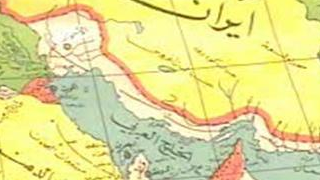The Wages of Ignorance, Part 2
Headline! Shi’ites Warn Of New War In Yemen
Lede! “The Iranian-sponsored Shi’ite revolt could again erupt inYemen.”
If you follow Yemen, you probably know there are a few things wrong here. If you don’t follow Yemen, but still somehow read this blog (drawn no doubt by the fancy web-design we employ), you can look at these line and draw a lot of conclusions that are misleading, if not downright false. If you are someone who influences policy, and are nodding your head saying “I agree with that lede” please read on.
To start with, I’ve argued elsewhere (no link, this is literally just an argument I’ve had with Greg) that it isn’t totally beyond the pale to think that there is a chance Iran is helping the al–Houthi revolt in some limited form. I don’t personally believe it, as it is a little far-afield for them and the Saudi connection would make for untenable bedfellows. But one of Iran’s regional goals is to project an ability to turn chaos on and off. It’s a good way to get people to pay attention to you.
That said, these kinds of stories and headlines are lazy, and have the potential to be dangerously lazy if they are become conventional wisdom with the shrugging acceptance of the “60 millions guns” myth, or the true-but-meaningless-but-scary-sounding “ancestral homeland of bin Laden” garble. The potential for Iran to be involved does not mean, at all, that they are, and the idea that this is just more Persian mischief by that all-powerful lunatic Ahmadwhatever is exactly the kind of parochial ignorance that leads to so many missteps when combatting localized radicalism. Journalists and policy-types are obsessed with Iran- to a degree rightfully so- and tend to see everything through that prism. Yemen thus becomes not a independent country with an individualized history, custom and problems, but a fairly anonymous chess-piece, hardly different than Egypt or Algeria or, hell, Uzbekistan (Muslims? Check. Poverty? Check? People blowing stuff up? Check). This kind of thinking, even if it is a little more subtle than that, leads people into the one-size-fits-all approach to counter-terrorism, which is an inevitable failure.
The al–Houthi revolt is borne of specific grievances, some of which resonate abroad, but to look at it as an Iranian invention- or even just to imagine a major role for Tehran- and to base policy on that assumption, is a dangerous fallacy. It is also partly created by the idea that if it is Shi’ite it is all the same, even though the Shi’ism in Yemen and that in Iran are not even close to the same. But: whatever. Karbala is Karbala, and that’s all ye need to know, right?
(Yes, this is a small article. But it is indicative of broader thinking)




